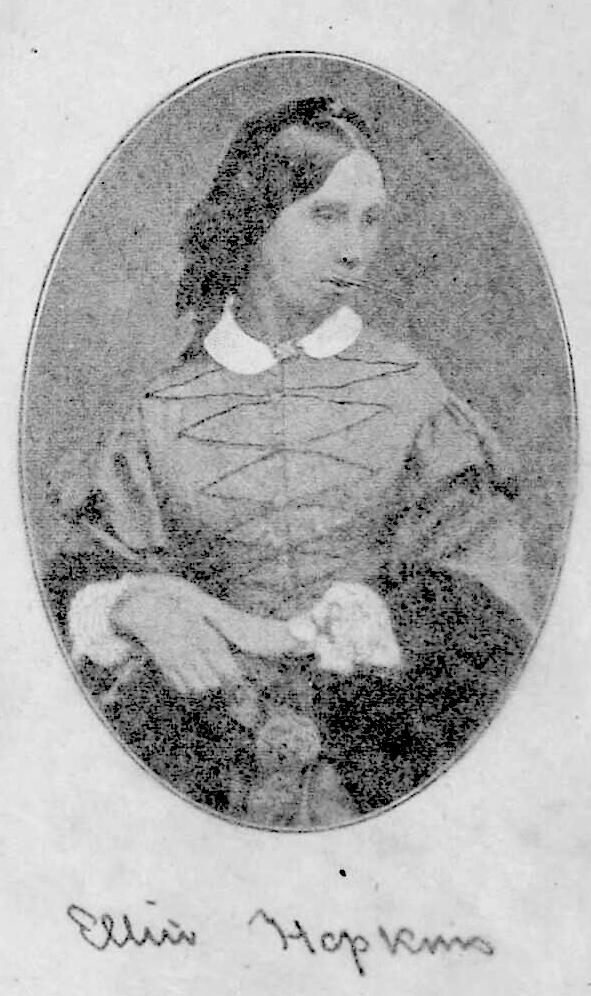Ellice Hopkins (30 October 1836 – 21 August 1904) was a Victorian social campaigner, author and co-founder with Bishop Joseph Lightfoot of Durham of the White Cross ArmyOrganisation set up in 1883 by the social campaigner and author Ellice Hopkins, together with the Bishop of Durham, to promote “social purity”. in 1883. She was a vigorous advocate of moral purity, and critical of contemporary sexual double standards.[1]
Born in Cambridge, the daughter of William Hopkins, a geologist and mathematician at the University of Cambridge, and his second wife, Caroline Frances Boys Hopkins, Ellice was educated at home by her parents. She became an “ardent evangelist” in the late 1850s, organising Bible classes and mothers’ meetings. Following her father’s death in 1866, Ellice and her mother moved to Percy House in Brighton, where she became involved in supporting the Albion Hill home for prostitutes. She also toured Britain in 1876, recruiting thousands of women to the Ladies’ Association for the Care of Friendless Girls.[1]
In 1874 Ellice and rescue worker Sarah Robinson established the Soldier’s Institute at Portsmouth, and in 1876 toured several British towns, recruiting thousands of women to the Ladies’ Association for the Care of Friendless Girls. Her biographer describes her as “instrumental” in the passing of the Industrial Schools Amendment Act of 1880, which allowed children to be removed from hazardous homes (including brothels) and placed in industrial schools.[1] She also lobbied for the Criminal Law Amendment Act of 1885, which raised the female age of consent from 13 to 16 and criminalised male homosexuality.[2] Of her co-founding of the White Cross Army in conjunction with Bishop Joseph Lightfoot in 1883 she wrote “It was hard that the power which would have been a glory to me if I were a man, should be held a shame and a disgrace to me because I was a woman,” she recalled of her work.[3]
Writing
Hopkins wrote in a wide variety of genres, including two volumes of poetry, English Idylls (1865) and Autumn Swallows (1883), and the sensational gothic novel Rose Turquand (1874), her only novel.[4][5] An Englishwoman’s Work Among Workingmen (1875) was a memoir of her activism. She also wrote pamphlets, most notably True Manliness (1884), and Christian devotional works,[6] including Christ the Consoler, A Book of Comfort for the Sick (1879), and A plea for the wider action of the Church of England in the prevention of the degradation of women, an essay in which she criticised the contemporary double standard by which women were disproportionately blamed for sexual immorality.[1] Her last books were The Power of Womanhood (1899), on the role of mothers in “moral evolution”,[3] and The Story of Life (1902), a guide intended to help parents teach sex education to their adolescent children.[7]
Later Life and death
Ellice was forced to retire from public life in 1888, suffering from chronic sciatica and nervous exhaustion, but she continued with her writing. She never fully recovered from an attack of aphasia[a]Aphasia, an impairment of language and the ability to read or write, is caused by trauma to the brain, most commonly a stroke in the elderly. in August 1903, and died at her home in Brighton on 21 August the following year as the result of a stroke.[1] Her bestselling work, True Manliness, had sold more than two million copies by the time of her death.[5]

